Cutting 21 conditional investment and business sectors.
Presenting the draft Law, Deputy Minister of Finance Nguyen Thi Bich Ngoc stated that, in addition to its positive aspects, Law No. 61/2020/QH14 on Investment has revealed some limitations related to regulations on the freedom of business of investors, investment incentives and support policies, procedures for conducting investment and business activities in Vietnam, and investment from Vietnam abroad…
These limitations have made the investment and business environment less attractive to investors, especially in the context of Vietnam facing increasingly fierce competition to attract foreign investment from countries around the world and in the region.
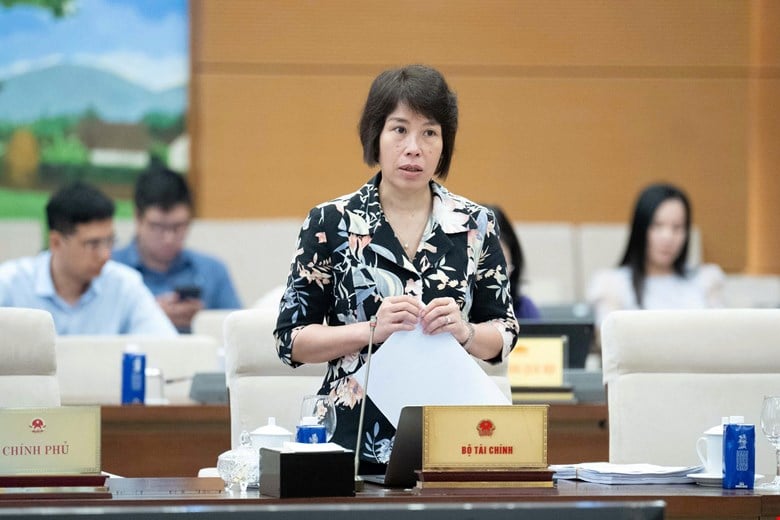 |
| Deputy Minister of Finance Nguyen Thi Bich Ngoc presented the draft Law on Investment (amended). |
The amendments to the Investment Law aim to improve regulations on conditional investment and business sectors and investment and business conditions, while simultaneously cutting down on some unnecessary and unreasonable sectors; perfecting the mechanism of decentralization of management between central and local agencies on the basis of ensuring the effectiveness and efficiency of state management, promptly addressing practical issues, and removing institutional bottlenecks...
The draft Law on Investment (amended) has reviewed and cut 21 conditional investment and business sectors that do not meet the criteria and conditions stipulated in Article 7 of the Law on Investment, including: Accounting services; Tax procedures; Rice export; Temporary import and re-export of frozen food; Trading of goods and activities directly related to the trading of goods by foreign service providers in Vietnam;...
Currently, the conditional business sectors listed in Appendix IV of the 2020 Investment Law largely apply a pre-approval mechanism (requiring a license before business operations can begin). This could shift to a post-approval mechanism to reduce barriers to market entry for businesses, promote business freedom, and implement Government Resolution No. 66/NQ-CP dated March 26, 2025, on the Program for reducing and simplifying administrative procedures related to production and business activities in 2025 and 2026.
The Economic and Financial Committee's review report recommends further research and review to reduce the number of conditional investment and business sectors, substantially cutting down on investment and business conditions, retaining only those conditions that are truly necessary for constitutional reasons such as ensuring national defense, security, order, morality, and public health; and to study the addition of regulations on criteria for measuring and evaluating "good" business conditions and publicly disclosing minimum compliance costs.
Besides reducing the number of conditional business sectors and professions, the draft Law proposes adding a regulation prohibiting investment and business in the "business of electronic cigarettes and heated tobacco products" to protect public health.
Regarding this matter, the reviewing agency believes that cases where production is solely for export and not for consumption or use in Vietnam, or for special purposes such as warranty, analysis, testing, scientific research, medical purposes, pharmaceutical production, national defense, and security, should be excluded.
In addition, the Economic and Financial Committee also requested the drafting agency to coordinate with the Ministry of Industry and Trade to review and consider amending the classification of "e-commerce activities" as a conditional investment and business sector.
Continue to maintain the investment policy approval procedure but simplify the process.
Regarding the procedure for approving investment policies, there have been many suggestions to abolish this procedure to reduce investment barriers. However, many also worry that abolishing this procedure will create many risks for state management, cause damage to businesses, and affect the investment and business environment.
Regarding this matter, in Conclusion No. 194-KL/TW dated September 20, 2025, the Politburo directed the continued regulation of investment policy approval procedures, aiming to narrow the scope of projects requiring this procedure.
According to the Ministry of Finance, eliminating the investment policy approval procedure will lead to a situation where investors do not know where to start the procedure to implement an investment project, especially for foreign investors and when implementing important investment projects with significant impacts such as: airport projects, seaports, nuclear power plants, projects in areas sensitive to national security and defense…
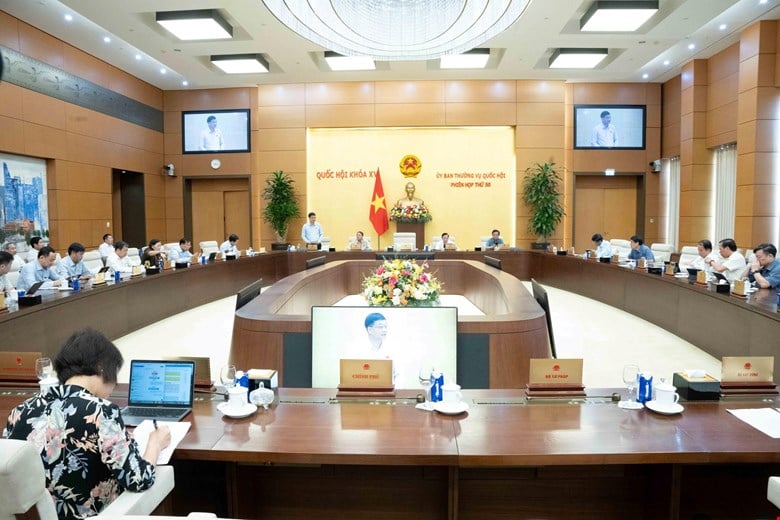 |
Furthermore, abolishing the investment approval procedure will lead to a situation where specialized laws will have to stipulate additional procedures for reviewing investment projects when allocating land, leasing land, changing land use purposes, allocating sea areas, granting construction permits, environmental permits, etc., making administrative procedures more cumbersome and eliminating the tools for controlling, inspecting, monitoring, and comprehensively evaluating investment projects.
Therefore, the investment approval procedure is a necessary procedure in managing investment and business activities in Vietnam. Amendments and additions to this regulation aim to resolve difficulties and obstacles, expedite the investment approval process, and ensure consistency and uniformity with relevant laws.
Therefore, the draft Law on Investment (amended) has narrowed and clarified the scope of projects requiring investment policy approval. Accordingly, investment policy approval is only required for infrastructure development projects in certain important and sensitive sectors such as seaports, airports, telecommunications, publishing, and journalism; projects proposing land use or sea area use; projects with significant environmental impact, potentially causing serious environmental damage, or implemented in areas affecting national defense and security…
At the same time, the draft Law clearly stipulates exceptions to the investment policy approval procedure in the following cases: Investors implementing investment projects that are subject to land allocation or land lease through auction of land use rights, or bidding to select investors to implement projects using land (except for projects under the authority of the National Assembly, the Prime Minister to approve investment policies , large-scale projects with significant socio-economic impact such as airport projects, seaports, industrial parks, etc.); projects winning the auction for mineral exploitation rights; and industrial cluster infrastructure projects.
Simultaneously with narrowing the list of projects requiring investment approval, the draft law also simplifies the procedures.
The Economic and Financial Committee's review report recommends a thorough review, considering only those cases that are absolutely necessary to follow the investment policy approval process. It also suggests further simplification of the investment policy approval process, clearly defining the list of projects requiring investment policy approval; the list of projects that do not require investment policy approval but do require investment registration; and the remaining projects that do not require investment policy approval or investment registration.
Abolish the procedure for approving investment projects abroad.
Regarding overseas investment activities, the draft Law stipulates the simplification of overseas investment procedures to create a more open and favorable environment for overseas investment, while still ensuring the necessary control mechanisms for the transfer of foreign currency abroad.
Accordingly, the draft law abolishes the procedure for approving investment policies abroad (an authority of the National Assembly and the Prime Minister).
At the same time, the scope of projects requiring the issuance of a Certificate of Registration for Overseas Investment will be narrowed down to only projects with an investment capital of VND 20 billion (USD 760,000) or investment projects in sectors subject to overseas investment conditions as stipulated in Clause 1, Article 43 of this Law. For projects with a scale of less than VND 20 billion, only the registration of foreign exchange transactions with the State Bank of Vietnam is required to transfer money abroad.
Regarding this matter, the reviewing agency stated that there are currently two differing opinions. The first opinion suggests maintaining the regulations on managing overseas investment as in the current Investment Law; however, consideration could be given to reforming administrative procedures, reducing compliance time and costs, and avoiding missed investment opportunities based on careful selection.
The second type of opinion agrees with abolishing the procedure for approving overseas investment policies and the Certificate of Registration for Overseas Investment. In this case, it is suggested that the drafting agency research and add regulations on the notification/registration of overseas investment information (without requiring approval from state management agencies) to serve post-audit work, coordinate with the State Bank of Vietnam to review and improve relevant legal regulations on foreign exchange management, and ensure the implementation of a database linkage mechanism to allow the transfer of capital abroad in accordance with the notified/registered information.
In addition, the study suggests that the Government should set a ceiling (20 billion VND) appropriate to the socio-economic conditions of each period.
Source: https://baodautu.vn/giam-21-nganh-nghe-kinh-doanh-co-dieu-kien-de-xuat-dua-thuong-mai-dien-tu-vao-danh-sach-siet-d414593.html




![[Photo] Two flights successfully landed and took off at Long Thanh Airport.](/_next/image?url=https%3A%2F%2Fvphoto.vietnam.vn%2Fthumb%2F1200x675%2Fvietnam%2Fresource%2FIMAGE%2F2025%2F12%2F15%2F1765808718882_ndo_br_img-8897-resize-5807-jpg.webp&w=3840&q=75)



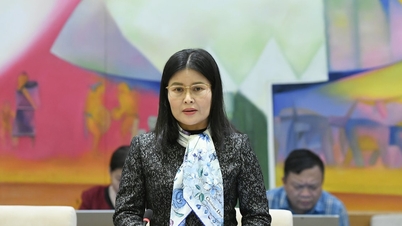

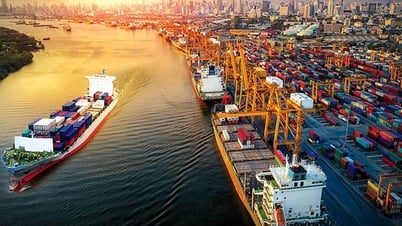


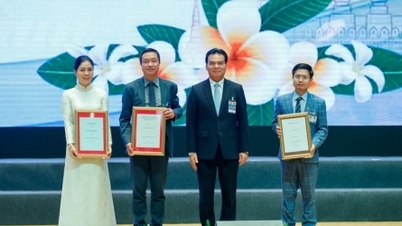

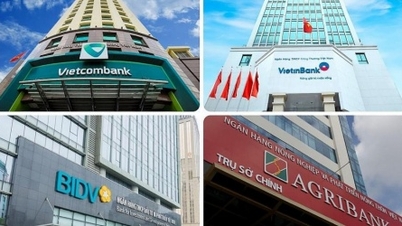















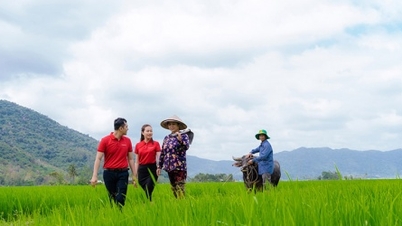











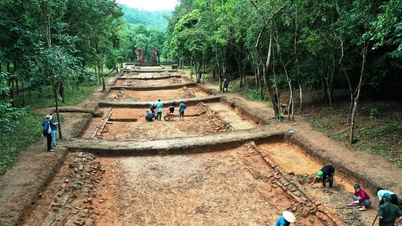





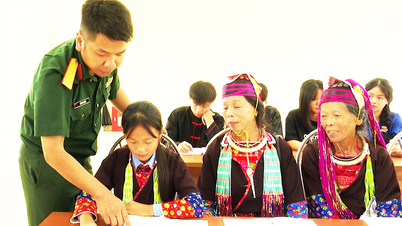






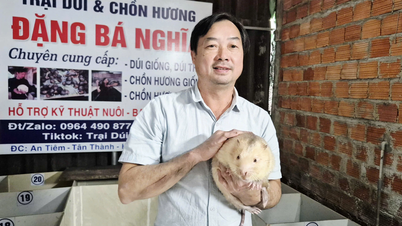



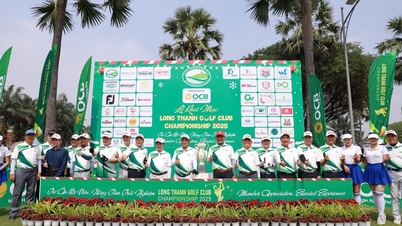


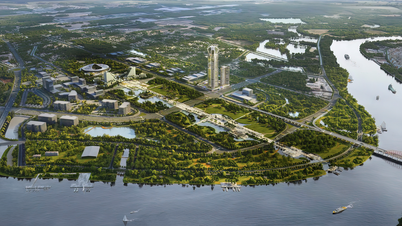





















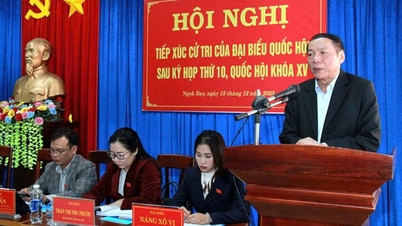






















Comment (0)